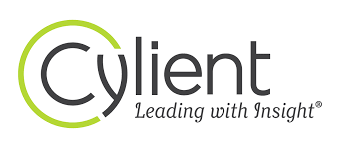ATD Blog
Navigating Unpredictable Change Together With “in the Moment” Coaching
Mon Oct 03 2022

Change is happening all around us, all the time—some of it we accept while some of it scares us. When change is predictable, we can rely on past experiences to guide us. If you’ve done a process improvement in your area a dozen times before, you likely feel confident that you can handle another one. There might be a few new twists or turns this time around, but there’s a good chance that you can figure things out based on your previous experiences.
Increasingly, we’re facing a very different kind of change—unpredictable change. It’s the kind of change that crashes into our lives, breaking up our old familiar patterns like a storm that came out of nowhere. These kinds of changes—the pandemic, waves of resignations, supply chain shocks, evolving social expectations, and whatever comes next—are the new normal. It’s not the normal that most people are hoping for, though.
If we can no longer look to the past to help us figure out what to do, where should we look? Many people look to their leaders with the expectation that they will have the right answers, but they’re in the same boat as everyone else. The usefulness of their past knowledge is expiring just as quickly as everyone else’s. This, of course, scares people even more, making unpredictable change more frightening—and frustrating—for everyone involved because so many of our old ways of dealing with change don’t work like they used to.
Learning How to Learn With Each Other
Since change has changed, we need to change how we respond to it. If we can’t rely on the past as our guide, we must learn how to learn “in the moment” from our present-day challenges. And we must learn how to do that with people who have different perspectives and agendas because most significant changes now cross into multiple areas. That’s what “in the moment” coaching helps us to do when it is driven by igniting insight.
For example, let’s say that Ray from operations and Charise from procurement do not agree on how to respond to an unexpected supply change shortage. The old-world approach would be to argue with each other about who is right and who is wrong, to find someone to overrule the other person, or just stop talking to each other altogether. Any of these responses will damage relationships and diminish the company’s ability to respond quickly to unexpected events.
If Ray and Charise learn “in the moment” coaching skills, instead, they would get curious about each other’s perspectives. They would use coaching approaches, such as asking questions, sharing stories, and offering insightful observations, to explore what might be possible. With the open mind of a coaching-based worldview and the skills to be in respectful dialogue, they might have the shared aha experience that results in a path forward neither of them expected. That’s exactly what we need right now—people who can think together to innovate on the fly in response to unexpected changes.
It’s important to note that it’s the aha experience of shared learning that would motivate them to explore change together. This kind of change doesn’t happen when coaching consists of manipulative questions that corral people towards a predetermined answer or pressures people to decide what to do without exploring possibilities. That isn’t coaching at all; it’s just telling people what to do by asking them directive questions. This is the opposite of what is needed to find new responses to new situations.
Insight-based “in the moment” coaching is the grease that turns the wheel of change more smoothly and quickly. Having a shared coaching language makes it easier for people with different perspectives to learn with and from each other and reimagine what’s possible together. When “in the moment” coaching is embraced as a leadership style and a way of life, people can do this together in the flow of work, which is where real change takes place.
You've Reached ATD Member-only Content
Become an ATD member to continue
Already a member?Sign In

